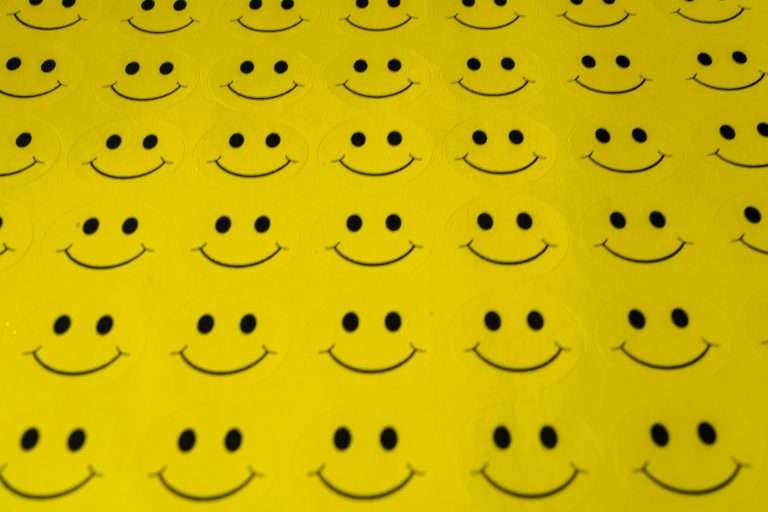Reading fiction usually doesn’t make the list for “[insert number] things you need to do to get your life around,” but maybe it should.
If you spend enough time in some corners of the internet, you may get the impression that reading fiction is a dying pastime, or at least unfairly disregarded. Literature classics have made way to the latest self-development books, especially those crowned with the New York Times bestseller title. (Some of those are on my recommended list too, so no shade.)
We have forgotten there are other ways to becoming better people besides gulping down neatly packaged statistics and following exact formulas, which is mainly what you’d discover in your average self-development book.
There is another way. But before that, I have an embarrassing confession to make.
After finishing university, I stopped reading fiction (with the exception of a few books that I can count on one hand).
Engaging with made up stories, getting sucked into a fictional character’s mind, being immersed in a new world, or weighing the ethical implications of the book’s protagonists wasn’t worth my tine anymore. That’s all good for English lit students (as I was) and academics who teach those texts, but not for a young adult who wants to find their place in the world. Oh, how wrong I was.
All the time spent reading imagined stories was eating up the time I could devote to learning a new skill, working or getting through a self-development book. Now that’s how you spend your time productively.
Instead of The Picture of Dorian Gray, my attention turned to others’ pictures on Instagram. I wasn’t reading How to Get Rich in Rising Asia, because I was too preoccupied with how to get rich in real life. Great Expectations was only relevant in light of reminding me of my own.
But as years have passed and the pile of finished self-help books kept growing, I became suspicious of the efficacy of this medium to impart wisdom and catalyze lasting change.
There could be many explanations for why these kind of reading is (mostly) ineffective – the nature of consume & discard of self-help books, the passivity the act – but my primary reason has to do with time and patience.
My favorite thing about reading fiction: puts you back in the flow of time.
There are some (great) services that help you get summaries (such as Shortform or Blinkist) so as to accelerate your learning and keep your “edge” with all the latest non-fiction.
While there may be summaries available for the great works of literature too, reading them instead of the actual prose defies their whole purpose. You have to approach them with patience and reverence, open your mind and be willing to be transformed. There’s no shorthand for the treasure of lessons they will reveal to you.
You can’t employ a summary for Dostoevsky’s Crime and Punishment and pretend you understood the layered ethical questions raised in the story. You can’t grasp the tangled relationship between guilt, morality and utilitarianism simply by consuming a sterile account of the facts, without the masterful weaving of Dostoevsky’s prose.
I could list off the benefits of reading fiction and making an argument based on them. After all, it’s been shown that engaging with works of fiction can improve your critical thinking skills, as well as develop your imagination. It offers a door into self understanding and a deepening of our ability to analyze and interpret events, through different lens (moral, social, political). Furthermore, reading fiction has been linked to a reduction in stress and anxiety, providing a mental escape from the pressures of everyday life.
But there’s a more subtle benefit when you immerse yourself in an intricate story with moral and philosophical stakes. It engages your ability to process and relate to stories (something we’ve honed over eons of evolution), which helps with cementing or challenging your understanding of the world, and creating connections between the events in the story and real life.
In Aristotle’s Way, Edith Hall explains the role of fiction as follows:
It is this human-centred moral and psychological focus which is what gives quality fiction – dramatic, cinematic or novelistic – its importance: it has the unique capacity to help us learn about ourselves, dark subjects and the world even as we delight in pleasurable recreation.
Marcel Proust in Time Lost:
Every reader, as he reads, is actually the reader of himself. The writer’s work is only a kind of optical instrument he provides the reader so he can discern what he might never have seen in himself without this book. The reader’s recognition in himself of what the book says is the proof of the book’s truth.
We don’t make time to digest stories, let them take shape in our brains and carefully mull over the plot and its dilemmas. The rise of services like Shortform attests to our hunger for knowledge, as much as to our eternal impatience. Letting things take their course has become a thing of the past, when you people were faced with their finitude more acutely than we are now. Actually, I’d say there are as many opportunities today as there were 100 years ago to recognize the ephemeral quality of life, we just have more shiny toys at our disposal which can help us brush our existential dread under the rug.




Couldn’t agree more. I’ve learnt more from reading Les Misérables and The Brothers Karamazov than I did from textbooks on ethics.
Also, your point on literature’s ability to develop imagination and empathy is absolutely crucial. There is an Iranian philosopher (Mostafa Malikian, I believe) who wrote a famous paper about literature and its impact on reducing crime based on the points you mentioned. I’ll get around to translating his article one day 🙂